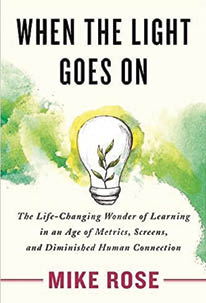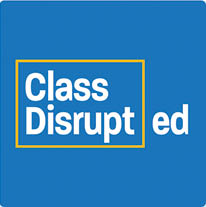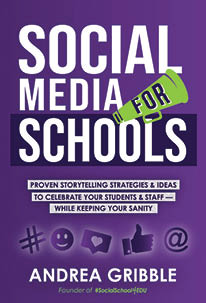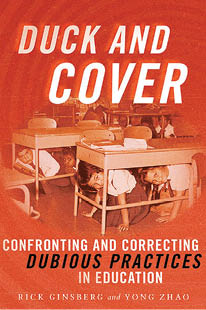Syllabus: November 2023

When the Light Goes On: The Life-Changing Wonder of Learning in an Age of Metrics, Screens, and Diminished Human Connection
In When the Light Goes On: The Life-Changing Wonder of Learning in an Age of Metrics, Screens, and Diminished Human Connection (Beacon Press), Mike Rose relies on his power as a master storyteller to weave together his own narrative with dozens of other stories, sharing the wonder and potential of true learning. A self-described student who was “loitering anonymously in the vast academic midlands” until a transformational high school teacher assisted him in attending Loyola Marymount University, Rose later pursued his master’s degree at USC and a doctorate at UCLA, where he worked, wrote, and taught in the School of Education and Information Studies until his death in 2021. His stories of transformative moments in learning from elementary classrooms to job-training programs for adults draw the reader in with simple-yet-hopeful chapter titles such as “Anatomy of an Awakening,” “Expecting More of Yourself,” and “How the Light Goes On.” The book focuses on the capacity of schools to facilitate the growth and discovery that Rose chronicles. He calls for personal stories to be part of decision-making data related to institutions, classrooms, instructors, and students since these accounts “provid[e] a richer and more accurate understanding of learning as affecting multiple dimensions of our lives.”
—Eric Fox
Assistant Principal, Jenks High School, Jenks, OK

“Class Disrupted”
Now in its fourth season, the podcast “Class Disrupted” offers insights and strategies on leveraging disruption post-pandemic to drive innovation in education. In each episode, Hosts Diane Tavenner, the co-founder and former CEO of Summit Public Schools, and Michael Horn, an education speaker and author, discuss the latest education trends and talk with experts. Many episodes cover perennial challenges such as “How Do You Staff Innovation?” (Season 4, Episode 6); “Why Failure and ‘Pivoting’ Is Hard in Education,” (Episode 8); and “How to Design a College Alternative” (Episode 14). An increasingly fraught issue that the podcast covers is school safety. “How Hardening Schools Could Harm Students,” (Episode 15) confronts the alarming rise in school shootings and the subsequent security measures that may negatively impact student mental health and the overall learning environment. Tavenner and Horn ultimately provide school leaders with valuable insights, drawing from real-life data and current events to foster meaningful dialogue. Each episode concludes with book recommendations and a reminder of the hope required to continue leading and shaping a better world.
—Brenda Yoho
Retired Director of Educational Support Programs, Danville District 118, Danville, IL

Social Media for Schools: Proven Storytelling Strategies and Ideas to Celebrate Your Students & Staff—While Keeping Your Sanity
In Social Media for Schools: Proven Storytelling Strategies & Ideas to Celebrate Your Students & Staff—While Keeping Your Sanity (Marketing on the Move), Andrea Gribble does a marvelous job of providing a framework to help school leaders—and social media managers, if schools and districts have them—succeed in celebrating their schools. She includes a wealth of resources throughout the book, such as ideas for developing podcasts, ways to start hashtags, and how to brand your school. As Gribble makes clear, stakeholders are going to talk about what’s happening in their local schools whether school leaders participate in the discussion or not. So, shouldn’t they be at the table for the discussion? One of the book’s most important chapters outlines numerous strategies for generating great content. Gribble also includes posting ideas for educators at each level—elementary, secondary, and administration. Her optimistic approach not only helps school leaders understand why social media should be used to tell their stories, but also provides them with specific and practical steps to do this important work.
—S. Kambar Khoshaba
Principal, South County High School, Lorton, VA

Duck and Cover: Confronting and Correcting Dubious Practices in Education
If you have ever done something because it seemed wise at the time but proved foolish later, you can relate to the message of Duck and Cover: Confronting and Correcting Dubious Practices in Education (Teachers College Press), by Rick Ginsberg and Yong Zhao. The book’s title relates to the 1950s practice of ducking under a desk to stay safe in case of a nuclear attack. In hindsight, the idea was silly, but the practice continued for many years. The authors use it as a metaphor for delving into education topics such as college and career readiness, reading proficiency by third grade, teacher evaluation, and class size, among others. Besides explaining the research and history behind common educational practices, the authors also challenge them, offering ideas and insights so that educators can achieve better outcomes. A “reconsider, remove, and replace” section at the end of each educational idea discussed helps readers meet students’ needs and understand the pros and cons of associated practices. The book’s fresh approach to productive work will appeal to all who wonder why current practices continue to provide mediocre results despite best efforts.
—Susan C. Paul, EdD
Principal, Kaiserslautern High School, Germany, Department of Defense Education Activity
